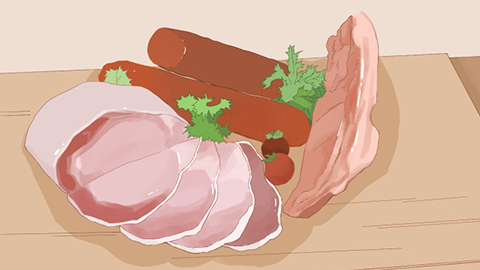Nasal augmentation refers to rhinoplasty.
Generally speaking, rhinoplasty refers to nasal augmentation surgery. Methods of rhinoplasty include implant rhinoplasty, rib cartilage rhinoplasty, hyaluronic acid injection rhinoplasty, and autologous fat grafting rhinoplasty. These procedures mainly involve augmenting the nose with autologous tissue, allogeneic tissue, or tissue substitutes to elevate the external nose and improve its shape. The general reference price for rhinoplasty is 3,000 to 8,000 yuan per session, with visible improvement typically seen within 1 to 3 months, although symptoms such as redness, swelling, and pain may occur. Eating meat after rhinoplasty is acceptable, but should be done in moderation. Detailed explanation is as follows:

Meat is an important source of high-quality protein, containing various essential amino acids required by the human body, such as leucine, isoleucine, valine, and others. It also contains abundant minerals like iron and zinc, as well as nutrients such as B vitamins. Protein is very important for postoperative recovery after rhinoplasty, as it serves as a key building block for tissue repair and regeneration, helping to promote healing of nasal tissues, enhance immune function, and prevent infections. Iron helps prevent postoperative anemia, ensuring normal oxygen transport in the body and contributing to overall recovery.
It is recommended to visit a reputable hospital and perform the above procedures under the guidance of a qualified physician to ensure the safety and reliability of the surgery. After surgery, it is important to protect the nose, avoiding external impacts or pressure that could displace the implant or affect the nasal shape. Additionally, opt for mild cooking methods such as steaming or boiling.







